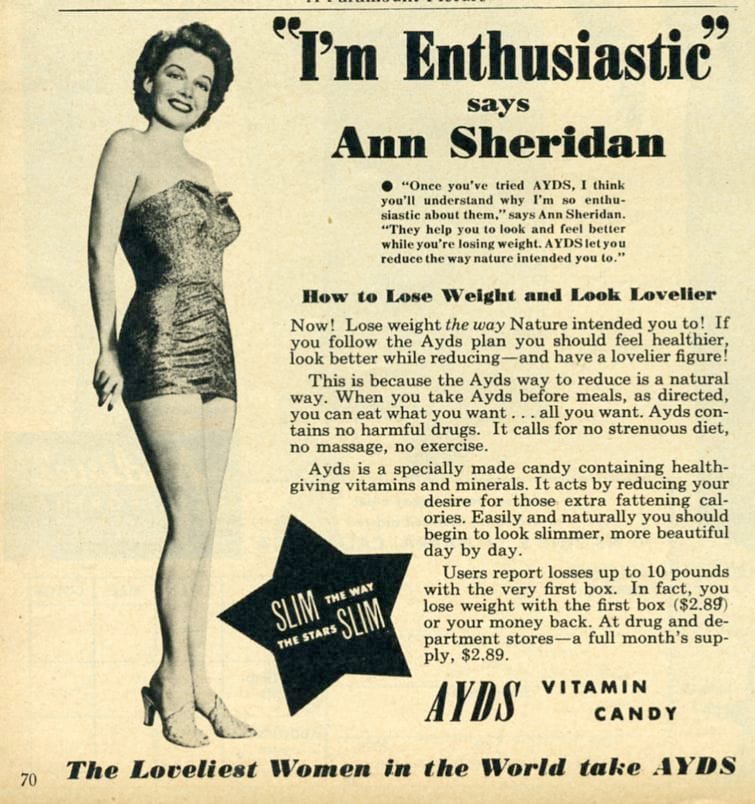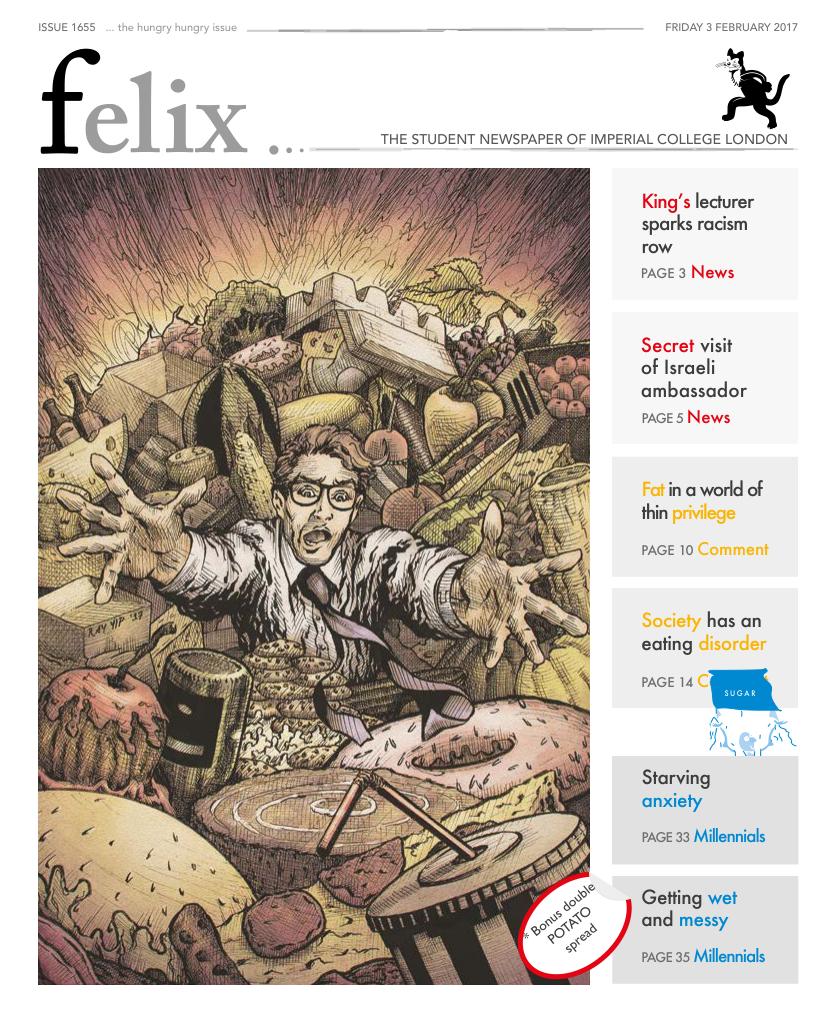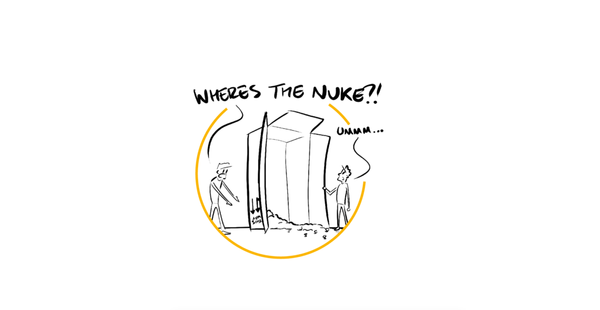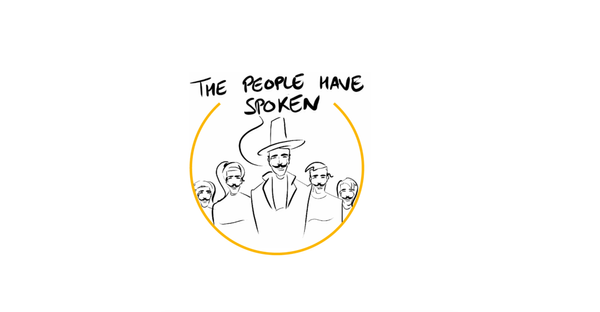Society has an eating disorder
Emily-Jane Cramphorn discusses our insidious weight loss culture

Society has an eating disorder. Sweeping statement, I know, but take a second to look at the posters next time you get on the tube. Diets, cookbooks, meal replacement shakes, protein bars, detox teas and pretty much anything you can think of claiming to be the answer to your weight problems. Weight problems that you probably don’t have.
We are constantly bombarded with the idea that we should be thinner; that tummy rolls are going to kill us and that becoming lighter is the key to health. We spend hours obsessing over what we should and shouldn’t eat, counting calories and reading up on miracle weight loss regimes. We waste millions of pounds of weight loss teas, diet pills and meal replacement shakes advertised by beautiful, and most definitely photoshopped, women who are being paid a fortune to say it has made them thin. We demonise gluten, fat, sugar and pretty much anything that tastes good. Carbs are replaced with courgettes and we use apps to track all our calories in and out. Food is categorised as good and bad and the ultimate goal is to take up less space, eat fewer calories and consist of less matter. We constantly measure and compare ourselves, we glorify the idea of restriction and self control, and tend to be guided by the notion that less is more. Everywhere we look, weight loss is being thrust upon us, whether or not we actually need to lose weight.
If society were a person, undoubtedly it would be diagnosed with an eating disorder: so many of the things that our society promotes are behaviours chastised in eating disorder units and that treatment programs force their patients to change. It is not healthy to obsess about food, to eliminate entire food groups or to force your body to exist below its natural weight. Meal replacement shakes are great for on the go snacks, to get in extra nutrients when you exercise heavily or on days when you don’t have time to cook, but they should not be used as an alternative to food. Our bodies are designed to digest solid food, thus, surviving of liquid nutrition can cause an array of digestive problems, not to mention fostering an unhealthy relationship with food. There is a reason why eating disorder patients are pushed to eat solids over liquid or enteral nutrition.
Likewise, whilst processed food often contains far too much sugar, humans have evolved to utilise carbohydrates as their main source of energy. Thus, cutting carbs is both unhealthy and unsustainable in the long term. It’s called keto because you go into ketosis, a state at which your body breaks down fat stores, including the essential ones, to form ketones in order to fuel itself. Whilst this isn’t immediately harmful, in the long term it can eventually cause muscle loss, reduced metabolic rate and deadly pH changes. What is more, prolonged ketosis forces the body into ‘starvation mode’ and will only make you gain more weight in the long run. It sounds like an old wives' tale but I can assure you that it is a real risk – check out the Minnesota starvation experiment.
I could go on to rant about why detox teas are quite literally s**t or why diet pills are stupid but that is not why I chose to write this article. The point I want to make is that people come in different shapes and sizes, some of us are heavier than others but heavier doesn’t mean less healthy. Many people with an overweight BMI are perfectly healthy, whilst others in the ‘normal’ range are damaging their body by forcing it to be there. Our bodies have a genetically determined set point and BMI is simply a measure of how your height to weight ratio compares to that of the rest of the population. BMI is good for identifying extremes but is largely an unreliable predictor of health. Indeed, some studies have identified that being slightly overweight can reduce the risk of disease. Ultimately, if you’re having to go hungry or obsess over intake so as to be a certain weight, the likelihood is that it is not your optimum weight.
We live in a society where the numbers that are on the scales and stitched into our clothes determine the food that we eat. We obsess about food and dieting all of the time and, by and large, have forgotten how to eat intuitively. They say one of the key indicators of eating disorders is skewed hunger cues and poor perception of satiety, but honestly, I think our entire society is afflicted with the distorted relationship with hunger and food. Food is not something that needs to be earned using a currency of exercise. Unless medically advised, we should not need to use apps and diet plans to dictate what we eat. More importantly, we should not be assigning moral worth to food or confusing weight loss with the pursuit of health.
I’m not saying we should live off McDonald's and chocolate cake alone, but eating McDonald's and chocolate cake doesn’t mean you have been bad. Nutrition is all about moderation, enjoyment and listening to your body – things that seem to be condemned by the clean eating and 'fitspo' movements. Similarly, I acknowledge that for some, weight loss is a necessary factor in their pursuit of health, but heavy and healthy are not mutually exclusive.
So next time you feel bad about your tummy tub or for eating one too many custard creams, remember that health comes in all shapes and sizes and is engendered by a flexible, instinctive and balanced approach to food.









